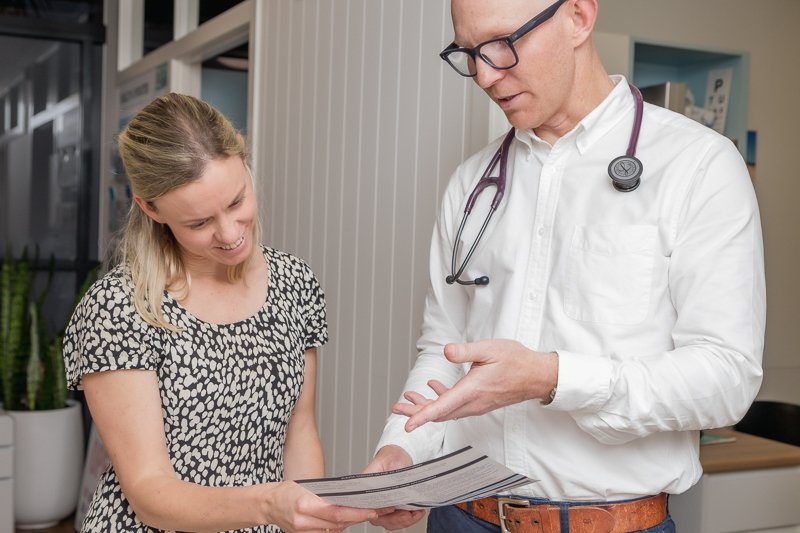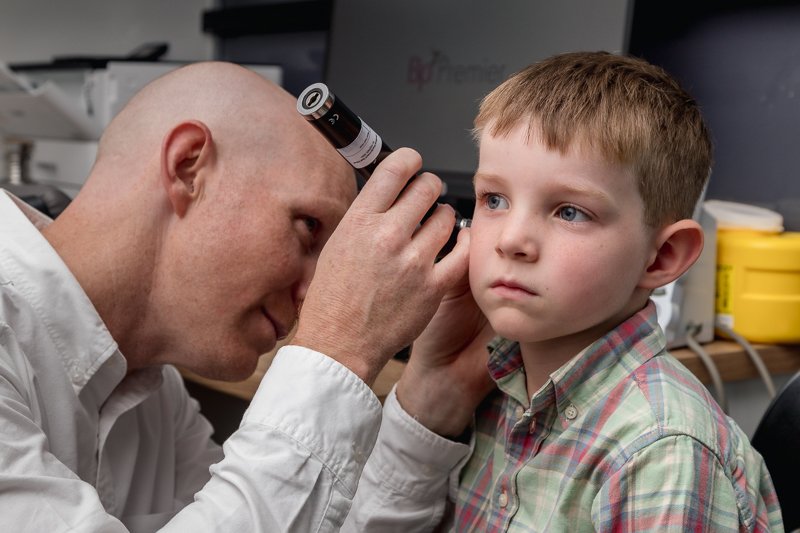Being a teenager is an exciting, interesting and often intense time. There are many physiological changes, as well as social changes as an adolescent develops into adulthood and navigates the challenges of high school, sport, friendships, and planning for their future while living in a changing body and mind. While this time is wonderful for many of us, it can also be overwhelming.
To add to the complication, our brains are still developing, making it hard to cope effectively. Data from the Australian Institute of Health and Wellbeing shows that 1 in 5 young people between 11-17 experienced psychological distress.
Half of the mental health disorders start as early as age 14, but many are not treated. Taking your teenager for a regular checkup and assessment can support the early identification, treatment and management of mental illness and support their wellbeing.
Some of the most common health concerns for adolescents include:
– Drug and alcohol use
– Mental health disorders such as depression and anxiety
– Sexual health
– Obesity
– Sedentary lifestyle/physical activity
– Nutrition
So, what are some signs that an adolescent might need some extra support?
Common signs to look out for include:
– Difficulty sleeping, sleeping either too much or too little
– Sudden changes in behaviour
– Altered eating habits
– Avoiding spending time with friends or family
– Loss of motivation
– Increasingly risky behaviour
– Anxiety
– Feeling ‘off’ or sad
How to Provide Support
If you’ve noticed these warning signs in yourself, a loved one or a friend, then remember that mental health disorders and low mood can often be effectively treated. There is no need to feel scared or ashamed. Noticing and treating a mental health disorder is no different to treating a physical injury.
This R U OK Day is a great time to check in on teenagers. R U OK Day raises awareness of mental health disorders and reminds us all to take a moment, check in with each other and ask “R U OK?”. R U OK Day falls on the second Thursday of September, this year being 8th of September 2022.
If you are concerned about your teenager, kindly bring up your concerns and ask them for their input on how they are feeling. The R U OK Day website has some great resources for how to ask the question “R U OK?”. You can find those tips here.
They suggest that you do take 4 steps:
Ask
Listen
Encourage action
Check in
Encourage them to share their feelings and respond without judgement. Avoid using any stigmatising language and discuss the warning signs of mental health disorders together. Here are a few other tips to support your teenager’s mental health:
– Identify trusted adults for your teenager to speak to
– Provide them with open, non-judgemental support
– Seek medical help and support
– Take care of your own wellbeing too, and seek support for yourself if you are undergoing additional stress
The HEEADSSS approach to adolescent mental health
Physical health is often key to mental health, and thankfully GPs are trained to clinically assess adolescents for both physical and mental health. There is no shame in seeing a GP to check in on a teenager’s lifestyle and mental health, just as we check in with a GP to assess physical health. One of the ways that GPs can assess teenagers successfully is by utilising the HEEADSSS approach.
HEEADSSS sounds like a confusingly long acronym, but it is a useful framework that supports GPs to do a psychosocial assessment of teenagers. This means that they assess their psychological and social wellbeing as well as their health.
HEADSS is an acronym that prompts doctors to ask certain questions and make sure that they cover important topics to identify any risky behaviours or health concerns. This is great as a ‘preventative health check’, meaning that you work to identify issues before they occur and stop unhealthy behaviours before they even begin, or before they worsen. If you are not confident talking to your teenager about their health and wellbeing, you can take them to your GP for an assessment – everything they say to their doctor will be confidential.
This is what the HEEADDSSS acronym stands for:
H – Home
E – Education and Employment
E – Eating and Exercise
A – Activities and Peer Relationships
D – Drug use/cigarettes/alcohol
S – Sexuality
S – Suicide and Depression
S – Safety
Our GPs are trained in recognising the signs and symptoms of mental health disorders, as well as common lifestyle or behavioural concerns for adolescents. They might be able to recognise a sedentary lifestyle, risks for drug and alcohol use, or nutritional problems. Maintaining an active and healthy lifestyle and anticipating risk factors is a great way to protect against mental illness.
This approach demonstrates how thorough GPs are when supporting adolescent health. If you have any concerns you or your child can seek the support of a GP whenever needed. They are trained in these approaches and will provide entirely confidential, non judgemental and empathetic healthcare for teenagers, supporting them with the variety of challenges that they might face in this phase of life.
For support with adolescent and mental health, book now at Peregian Medical Centre.






